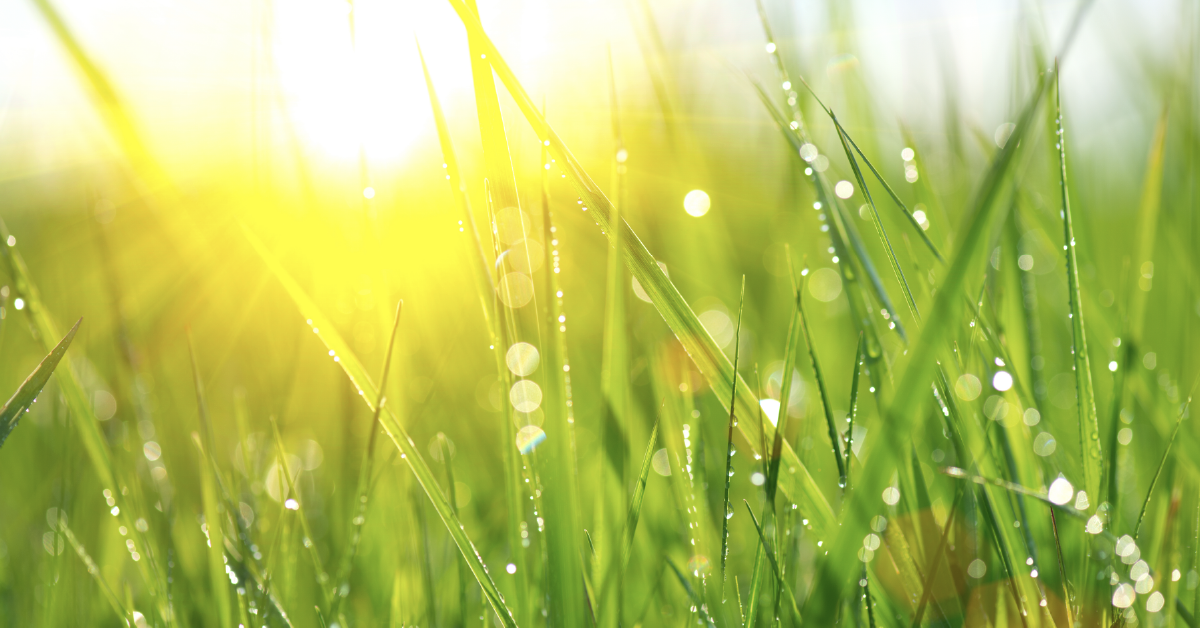Planting a quality, natural grass seed in your lawn offers a list of beneficial environmental impacts that stretches far beyond your home. At Curtis and Curtis Seed, we believe that the grass seed you choose should always grow a sustainable lawn that promotes a healthy and stable environment.
Benefits of planting quality lawn grass seed
What you plant around your home matters. The environmental impacts of planting quality seed products that are specifically designed for your home’s conditions, region, and soil type are increasingly positive. A thriving lawn is not only more enjoyable for homeowners, but for the surrounding ecosystems as well.
Let’s dive into some of the most notable benefits of planting a sustainable lawn.
Improved air quality
One of the benefits of a healthy lawn is increased oxygen production and improved air quality. Like all plants, your grass will take in carbon dioxide and then release the oxygen we need to breathe. Your lawn can also capture allergens and pollutants found in the air resulting in a cleaner quality of air.
Erosion control
Aside from the boost in curb appeal, a thick and lush lawn comes with a handful of healthy benefits. The root system created by your grass offers a hand in erosion control to protect your soil from wind, water, and other potentially harmful conditions.
Regulating temperatures
There’s a reason why grass feels so good on a hot summer day. Your lawn’s grass is able to cool itself through a natural process that results in a significantly cooler surface temperature when compared to artificial turf grass, concrete, and other outdoor surfaces. Research has also found that homes surrounded by grass use less energy (and money) to air condition their house than those surrounded by concrete.
Increased sustainability
There are a number of ways you can increase your lawn’s sustainability. For starters, using a grass seed that is well suited to your region's conditions will perform better with less maintenance. Do your research to find a product that meets your needs and preferences when it comes to lawn care and watering.
Environmental impacts of native grasses
Native grasses provide a habitat for pollinators and a diverse ecosystem for surrounding plants and animals. In recent years we’ve seen more and more people transition their lawns to either full native grass, partial native grass, or just include more native plants into their landscaping. These plants will thrive in their native region, exhibiting resistance to disease and requiring less water and maintenance.
Planting with confidence in your seed
Since 1956, we’ve held our seed products to the highest standard to exceed industry regulations and deliver absolutely quality results to our customers. Our lawn grass seeds produce higher germination than competitors, ensuring you get the most out of your seed investment. When you purchase a product with the Curtis and Curtis label, you can rest assured that your lawn will never consume noxious weeds or unnecessary fillers.
Need help finding the right grass blend for your home? Contact our team to schedule your free consultation with our Cultivation Experts.

